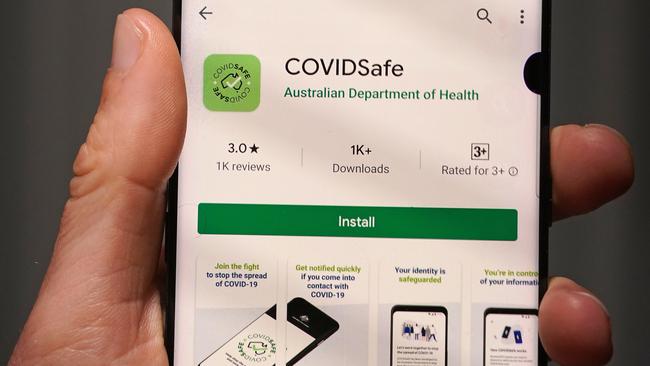Bluetooth handshakes to help reopen the economy

Unlike developed nations such as Britain, France, Italy, Spain and much of the US that continue to battle alarming COVID-19 death rates and caseloads, Australia is well placed to begin resuscitating the economy, while continuing prudent measures to keep the pandemic contained. The opportunity to emerge from lockdown is timely, judging by research released by the Business Council of Australia, which sets out the economic pain inflicted by the ravages of recent weeks.
The EY analysis, Joe Kelly reports, suggests that with existing COVID-19 restrictions lifted after a month, the cost would be 10 per cent of GDP, or $197.3bn. Restrictions have already been in place for slightly longer than that. Pubs, clubs, cinemas, gyms and casinos closed on March 23. Six months of shutdown, lasting until September, EY estimates, would cost $402bn this year — 20 per cent of GDP. A middle-ground approach of three months of restrictions would cost $278.3bn, or 14.3 per cent of GDP.
The Morrison government’s COVIDSafe app, which was switched on at 6pm on Sunday, will give health authorities the chance to conduct all-important contact tracing as Australians get back to work and out and about again. A bridge between lockdown and more normal activity matters. Australia is winning the battle against coronavirus, but we have not won it yet, as Health Minister Greg Hunt said in launching the app on Sunday. Thirteen newly diagnosed patients took the nation’s total of confirmed cases to 6710 on Sunday night, as the number of deaths edged up to 84. The outbreak in Tasmania’s northwest continues. In Sydney’s west, an 82-year-old man became the sixth resident of the Anglicare Newmarch House aged-care facility at Caddens to die of the disease.
In a society that values choice, the Morrison government, wisely, has made the COVIDSafe app voluntary. For good reason, Australians are wary about more incursions by government into their private lives, which is why the government has gone out of its way to reassure Australians about such concerns. Privacy provisions will be legislated when parliament returns next month. Access to app data will be strictly limited to state or territory health authorities for contact tracing, Mr Hunt said. Not even a court order during the investigation of an alleged crime, he said, would allow data to be accessed. And once the coronavirus pandemic is over, all data collected would be deleted. The take-up of the app will reveal how effective such reassurances have been. Any backsliding on those pledges, whenever they were revealed, would be a monstrous breach of trust, unlikely to be forgiven by the public.
The government has been aiming for at least a 40 per cent take-up. It should achieve it. Monday’s Newspoll shows 54 per cent of Australians are well-disposed towards the voluntary app. Without it, the essential tracking and tracing as new cases of the disease emerge would be laborious for health workers, with valuable time lost to stop the vile disease in its tracks. As Mr Hunt says, Australia has had more than 500 cases of coronavirus in which the original source was unknown — be it on public transport, standing in lines, or elsewhere. “Bluetooth handshakes’’ provided by the app will help solve such riddles, allowing for quicker testing and quarantining. As students download the app, its impact on school attendances could be be interesting.
Now that the app is available, the three prerequisites Scott Morrison said were necessary for winding back restrictions are in place. These include extensive testing and the capacity to respond to any surge in cases with sufficient hospital beds, ventilators and personal protective equipment for medical staff. Small, sensible steps to ease restrictions are under way. Queensland, which has 1030 confirmed cases, on Friday will reopen national parks, allow recreational drives, non-essential shopping and family picnics. The easing of restrictions is welcome but makes social distancing more important. COVID-19 leaves no room for complacency. Singapore, which appeared to be on top of the problem, is now in trouble. On Sunday, it reported 931 new infections, mainly among migrant workers living in cramped dormitories. Prominent economists, whose colleagues have questioned the extent of lockdowns, are warning of the dangers of a second wave that would be even worse for the economy. Infected but asymptomatic young people could unwittingly spread the virus as social distancing eases, Citi senior economist Joshua Williamson has warned.
Australia is weathering an extraordinary crisis, unimaginable at the start of the year. As our society embarks on recovery, caution in avoiding relapses must be front and centre. As BCA chief executive Jennifer Westacott says, kickstarting recovery and rebuilding job security, including for those in danger of being left behind, will depend on how quickly and safely the nation recovers from the pandemic.

